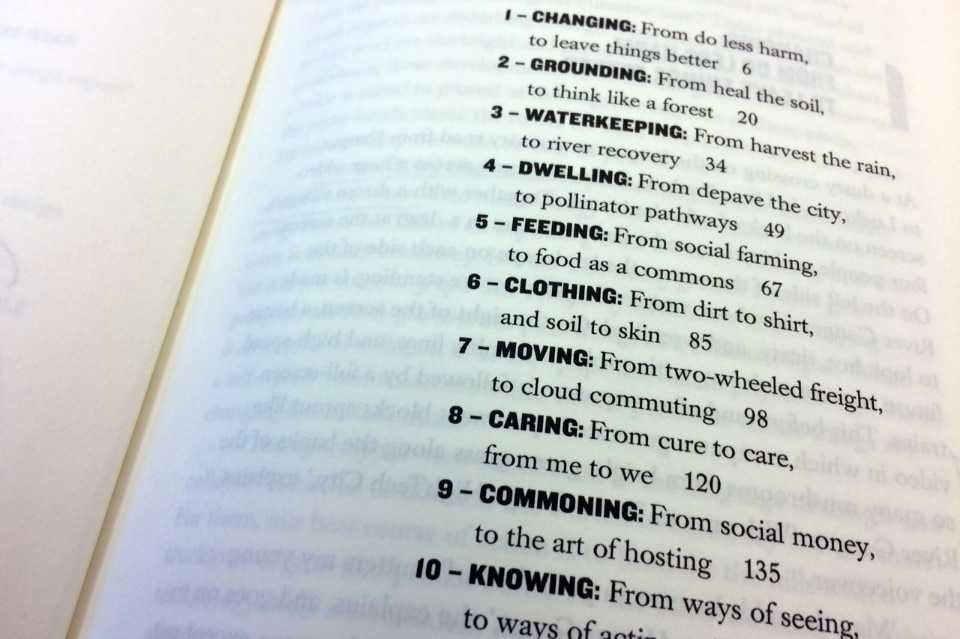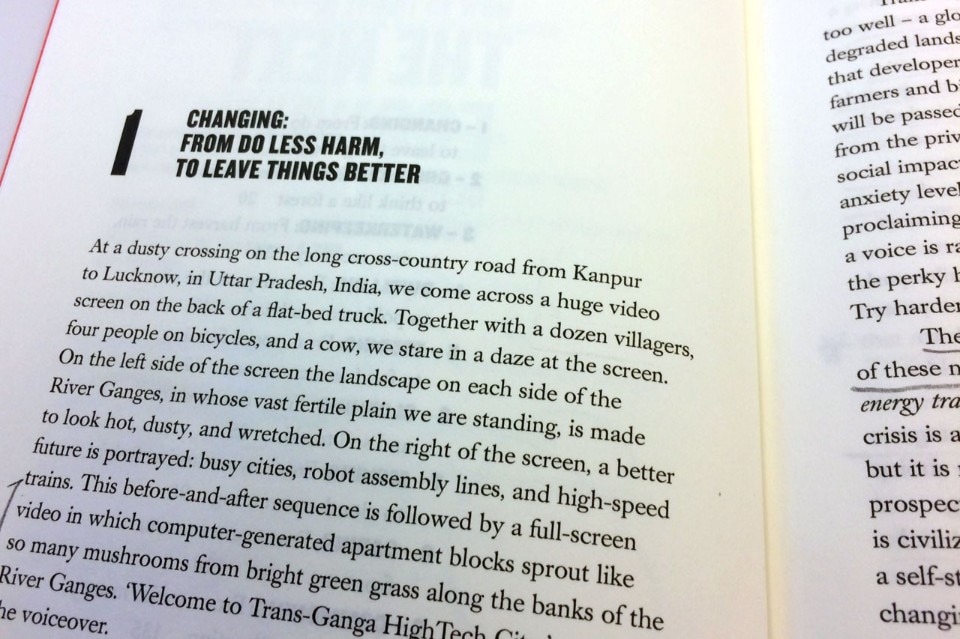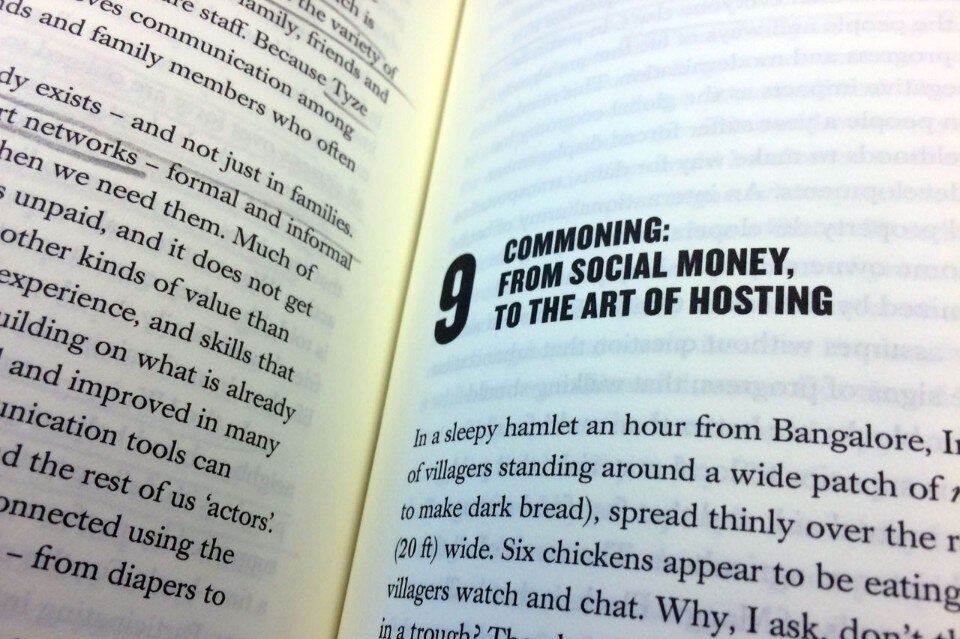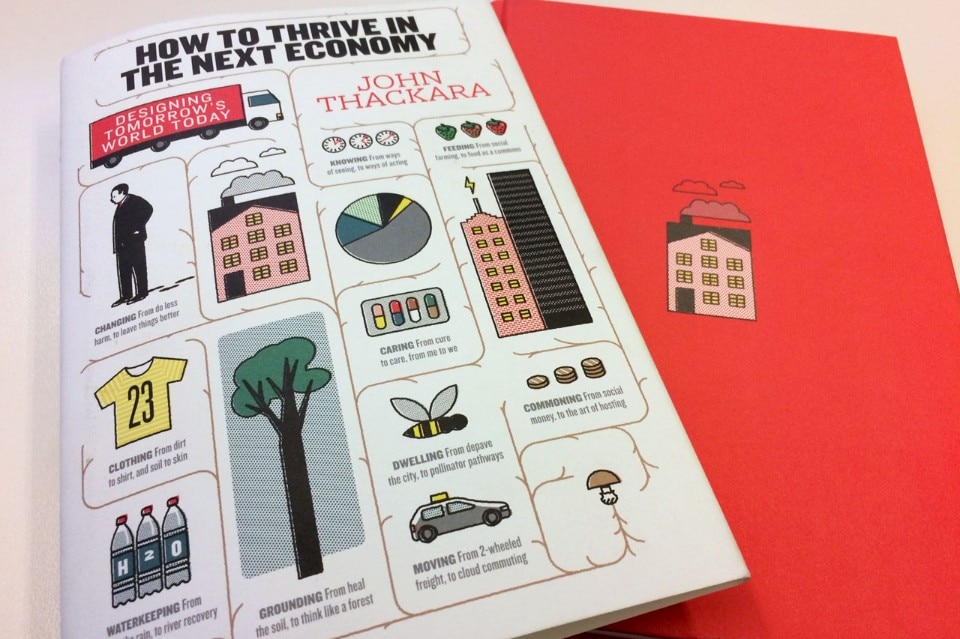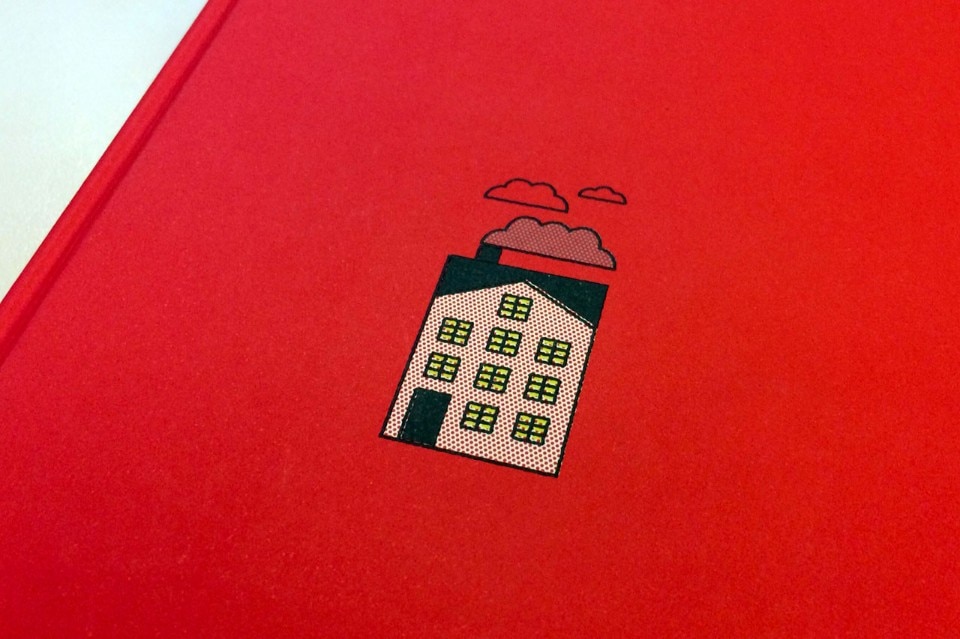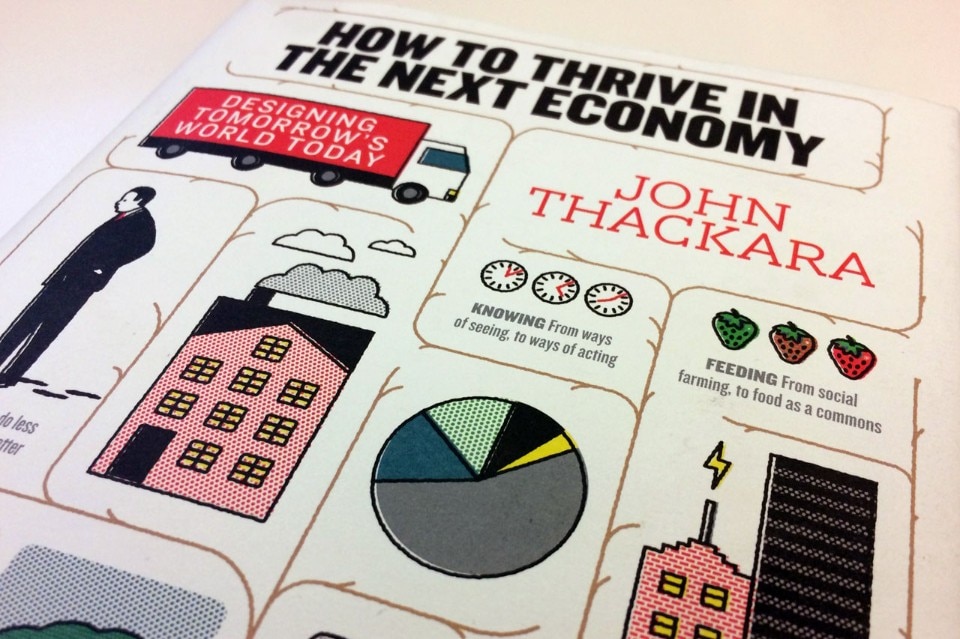If now we take for granted that the World Wide Web has mainly become the biggest market ever conceived by man, with a public of planetary dimensions that is offered ads and products of all kinds with increasingly cutting-edge and innovative systems, it’s not a bad idea if someone reminds us the promises Internet had made when it first came out and how we can keep these alive even today. In his latest book, How to Thrive in the Next Economy, John Thackara – a journalist, writer, theorist of design and, for many years now, organiser of the “Doors of Perception” festival devoted to design in a broad sense, as research into strategies for a sustainable future – invites us to take a closer look in order to answer the question that only few ask in its more radical terms, that is: “Are we really sure the values upon which we are building our Western world are indeed the best?”. Even when it’s clear – like in these hard times of ours – that the model of overreaching growth, which ends up ruthlessly devastating the environment, can’t be followed scot-free for much longer, we find it hard to hypothesise any real alternative scenarios.
